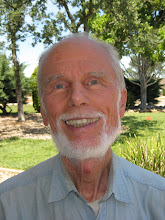Free at last! Thank God! I'm free at last! Yesterday I got my editor's acknowledgement of receipt of my revised 2226-word ms for Touchstone's forum on Harry Potter to be published in November, the month the next Harry Potter movie comes out. As I understand the forum, my con article will be submitted to a couple of critics for their responses to it.
Over the past 8 years that I have been studying and writing about my bete noire, Harry, I have compiled a massive basis of observations for my criticism, including my notebook with detailed notes on my reading of each of the seven volumes of the series. And I have written thousands of words of detailed commentary. For all of that, I have published only four articles on Rowling's work, three in The American Spectator Online (July ?, 2005; Aug. 15, 17, 2007) and Celebrate Life (Nov/Dec 2007). The mainstream Christian journals have taken the Christianity Today line that these books are a "book of virtues." And even First Things and Touchstone have published favorable reviews on the little wizard.
I have distilled my 5000-word 2007 ms to meet an editorial requirement of about 2000 words. So, instead of my natural approach of building detail on detail, I have cut the details to fit and made my strongest argument on the basis of the contrast between Rowling's Post-Christian imagination and relativist morality and the profoundly Christian vision and transcendent (absolute) morality of Tolkein and Lewis. I think that the necessity of brevity will prove a virtue in this essay.
The lynchpin of my essay, then, is the following words of Aragorn to Eomer in the fields of Rohan when Eomer disputed his passage with Legolas and Gimli on their mission to rescue Pippin and Merry:
"Good and ill have not changed since yesteryear; nor are they one thing among Elves and Dwarves and another among Men. It is a man's part to discern them, as much in the Golden Wood as in his own house" (The Two Towers, Ballentine pb, 1965, 50, cited by Gene Edward Veith, “Still Ringing True,” World Magazine, 2001).
Do pray for Joanne Rowling and her many readers, that God may grant them his grace.
Showing posts with label C.S. Lewis. Show all posts
Showing posts with label C.S. Lewis. Show all posts
Thursday, July 10, 2008
Monday, December 3, 2007
Transcendence in J. R. R. Tolkein's "Lord of the Rings"
Tolkein's fantasy world in The Lord of the Rings lacks direct references to God and contasts sharply with C. S. Lewis's Narnia by Middle Earth's lack of a personal figure representing God as Aslan does in Narnia. But Tolkein's overarching mythology of Middle Earth set forth in The Silmarillion names the Creator of Middle Earth and its creatures Eru, the One, who in Arda, the earth, is called Iluvatar. This story further parallels the Biblical account of creation in Genesis with the rebellion and fall of Melkor, the greatest of the angelic spirits called the Valar, a story obviously modeled on the rebellion of Lucifer against God. And both Gandalf the Grey (not really a wizard, but a Valar) and elven King Elrond, two of the wisest and most powerful beings working for good in Middle Earth during its Third Age, tell us that a higher power is secretly working to thwart the Dark Lord Sauron of Mordor.
Moreover, other good characters recognize a transcendent ethic that contrasts sharply with the relativism of good and evil of contemporary imaginative works such as the Star Wars science fiction movies and Joanne Rowling's fantasy world of Harry Potter and the Hogwarts School of Witchcraft and Wizardry. Consider, for example, Gene Edward Veith's citation from The Two Towers (the second volume of Tolkein's trilogy) in "Still Ringing True," World Magazine, 2001:
"Good and ill have not changed since yesteryear; nor are they one thing among Elves and Dwarves and another among Men. It is a man's part to discern them, as much in the GoldenWood as in his own house."
Have you readers of Tolkein's trilogy noted other examples of this absolute morality that transcends time and place and is common to elves, men and the other rational creatures of Middle Earth? Or of other evidences of Providence in Middle Earth besides Gandalf's reassurance of Frodo that a power other than that of Sauron had brought the One Ring to Frodo and besides King Elrond's affirmation that the apparently chance gathering of representatives of the races of Middle Earth at his palace was not an accident but was ordained? If so, please post them.
Moreover, other good characters recognize a transcendent ethic that contrasts sharply with the relativism of good and evil of contemporary imaginative works such as the Star Wars science fiction movies and Joanne Rowling's fantasy world of Harry Potter and the Hogwarts School of Witchcraft and Wizardry. Consider, for example, Gene Edward Veith's citation from The Two Towers (the second volume of Tolkein's trilogy) in "Still Ringing True," World Magazine, 2001:
"Good and ill have not changed since yesteryear; nor are they one thing among Elves and Dwarves and another among Men. It is a man's part to discern them, as much in the GoldenWood as in his own house."
Have you readers of Tolkein's trilogy noted other examples of this absolute morality that transcends time and place and is common to elves, men and the other rational creatures of Middle Earth? Or of other evidences of Providence in Middle Earth besides Gandalf's reassurance of Frodo that a power other than that of Sauron had brought the One Ring to Frodo and besides King Elrond's affirmation that the apparently chance gathering of representatives of the races of Middle Earth at his palace was not an accident but was ordained? If so, please post them.
Labels:
C.S. Lewis,
Hogwarts,
J.K. Rowling,
J.R.R. Tolkein,
Middle Earth,
Narnia
Subscribe to:
Posts (Atom)
